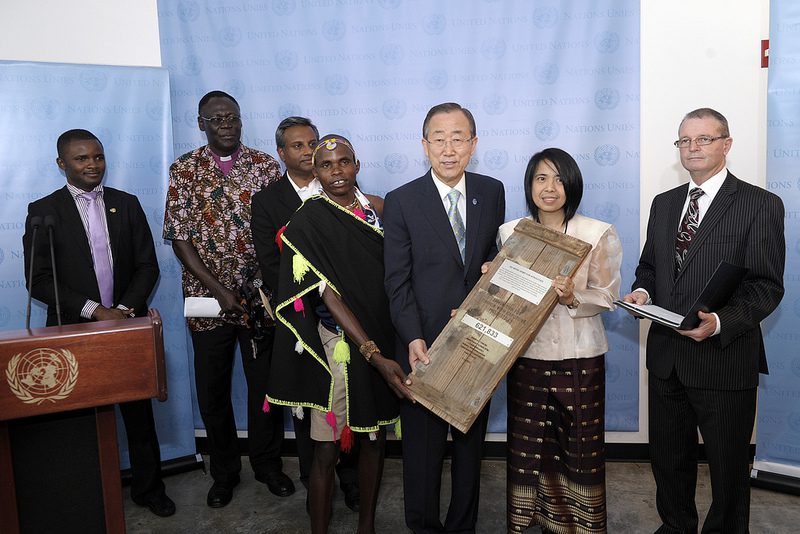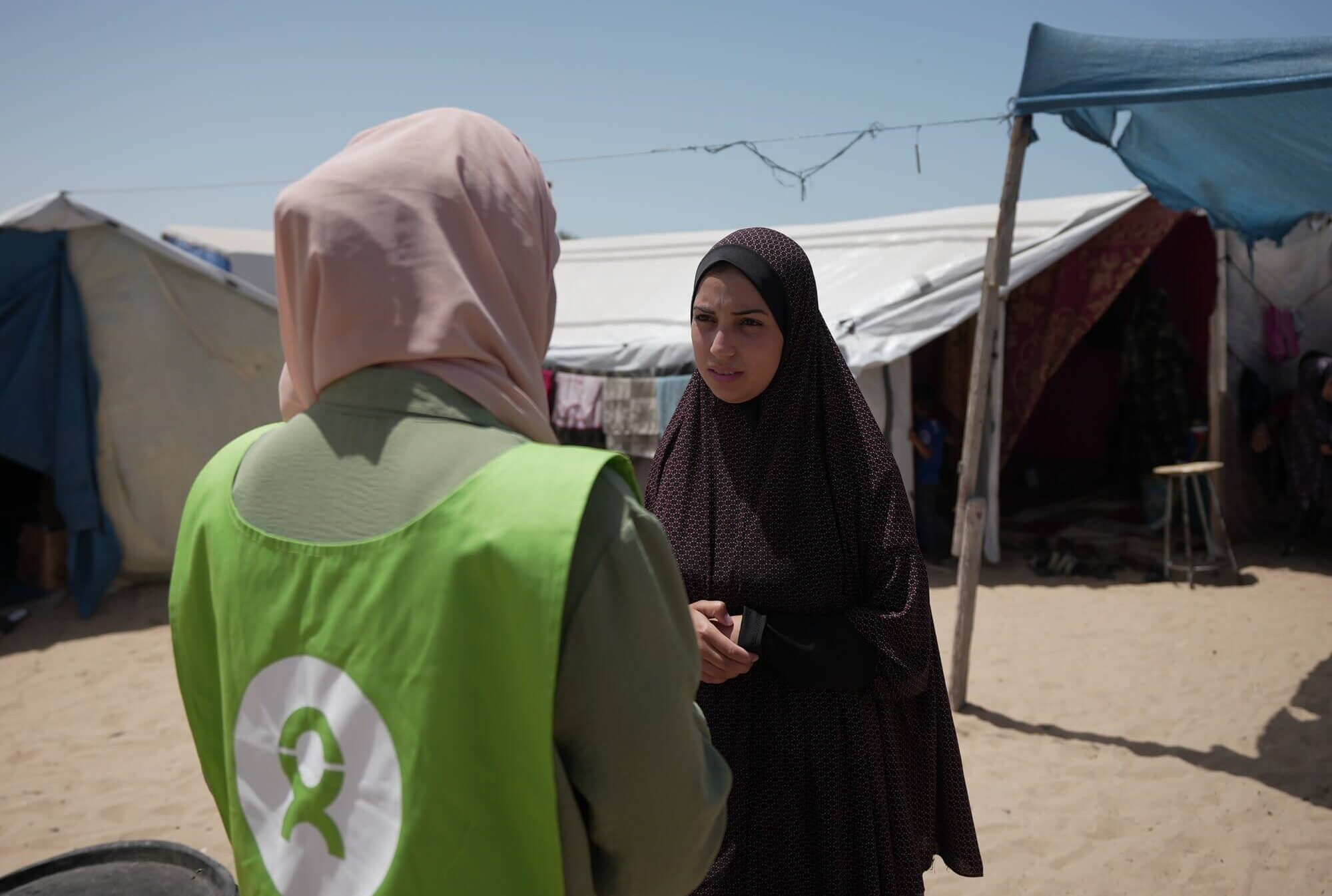Today in New York, Control Arms campaigners handed over the Speak Out petition on the Arms Trade Treaty to UN Secretary General Ban Ki-Moon, signed by over 521,000 people worldwide. The petition calls on world governments involved in the Arms Trade Treaty Negotiations this month to secure a strong, effective treaty that prevents irresponsible arms transfers from continuing to fuel human rights abuses, atrocities and poverty.
Secretary General Ban-Ki Moon spoke at the handover to express his gratitude for the efforts of campaigners from across the globe for more than ten years in making this treaty a reality. His speech is below:
Thank you for your initiative and action.
I am very much grateful, moved and encouraged by all that you have done this morning, but not only this morning, but since many many years to make this world better for all, secure and safe for all the people by removing and eliminating all these small arms and light weapons and nuclear weapons. I thank you very much for all your string commitment and leadership.
I always feel honoured when I receive appeals from citizens of the world who are pressing the United Nations, and Member States, to address urgent issues which we are now dealing with.
With your petitions and declarations today, you are reminding the world that we need to act.
I have just opened the United Nations conference on the Arms Trade Treaty. I sincerely hope that the Member States agree to a legally-binding treaty regulating the arms trade. So many people have been killed. So many crimes and abuses of human rights and humanitarian laws [which] have been violated. So I have to work very closely with the Member States. I have urged them to work and agree with this legally-binding treaty by the end of this month.
We need to act now to end the widespread human suffering caused by the unregulated international arms trade.
The absence of common standards to regulate international transfers of arms has made it easier for conventional weapons to fuel armed conflict and crime … to commit acts of terror … and to perpetrate political repression and grave human rights violations.
I am convinced that your strong voices will inspire and motivate the delegates as they work to adopt a robust and meaningful treaty by the end of this month.
You have to raise your voices. You have to watch and supervise how this treaty, once effective, will be implemented. You have the legitimate right as citizens of the world.
We owe it to the hundreds of thousands of victims of armed conflict and violence … to all the children who are deprived of a better future … and to our peacekeepers and humanitarian workers who risk their lives in the field.
I applaud the Members of Parliaments for a coordinated approach in support of the Arms Trade Treaty.
Parliamentarians will play a crucial role in ensuring the swift ratification of the treaty once it is adopted.
Let me also register my special thanks to the leaders of the Control Arms Coalition as well as all those here today, for your vigorous and invaluable efforts.
You represent almost all the spectrum of our life – in terms of gender, in terms of profession, in terms of your belief. I think you represent the whole world and our common efforts to make this world better and safer.
Your determination has helped us get this far – and your continued pressure and activism will help make a Treaty a reality.
As I have said many times, the world is over-armed and peace is under-funded.
Sixty years of United Nations peacekeeping have cost less than six weeks of current military spending. This is unacceptable.
Every day, we at the United Nations confront the human cost of lax controls on the arms trade.
We can change this, and you can help us. Let us make again all together this world better for all. Thank you for leading the way.
There’s now less than four weeks to negotiate this vital instrument. You can follow the negotiations through regular Oxfam Australia blogs as well as at www.attmonitor.posterous.com
by Ben Murphy, Humanitarian Advocacy Officer



